With the right equipment and proper food, taking care of Betta fish, or Siamese fighting fish, is fairly easy to do. Because of its aggressive nature, most fighting fish have to live alone in captivity because they easily pick fights and can become forceful enough to attack or kill other fish. These actions are a result of being territorial and wanting to protect their space.
Cramped Living Space Can Be Detrimental
The proper way to take care of Betta fish is to provide a large enough living space. Because most of these Betta fish are purchased in small containers, individuals usually think a small tank is what the fighting fish prefers. This is not true, and it can quickly become unhealthy or fatal to the fish.
The Ideal Tank Size
Because it is important to maintain ideal water temperature conditions of between 78 and 82 degrees Fahrenheit, it is necessary to have a tank that can hold five gallons of water or more. Additionally, the water needs to be dechlorinated, or chlorine-free. If none is available, simply fill the tank of water and wait at least 24 hours before placing the fish in the tank. This will allow enough time to “stale” the water by releasing any chlorine into the air. It will also allow the water heater time to raise the temperature up to the optimum degree.
What to Feed a Carnivore
Feeding your Betta the proper nutritional food is also important in taking care of a Siamese fighting fish. Because Bettas are carnivorous by nature, they need to have a daily supply of brine shrimp, mosquito larva or blood worms. As a supplement, pet stores sell Betta pellets or tablets manufactured from dried and powdered bloodworms, shrimp and fishmeal.
Dosing the Right Amount of Food
It is very vital not to overfeed or underfeed him. Overfeeding disrupts the natural balance of his digestive system and produces detritus, or the organic waste that collects at the bottom of the fish tank. As more detritus accumulates on the floor of the tank, the more likely the water will become cloudy and murky, which can promote the rapid growth of bacteria and cause disease in the fish. Should the water become too cloudy, it is important not to replace more than 25 percent of the total amount of water at any one time. This will help maintain its natural pH balance of 7.0.
Providing the proper care to a Betta fish will afford your pet the opportunity for a healthy life. By keeping your fighting fish away from other aquatic life, he will naturally enjoy living a long time.







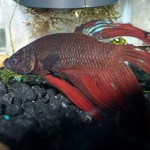

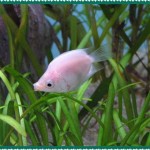


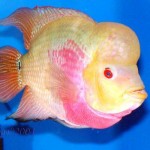
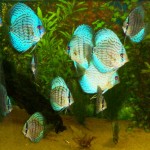
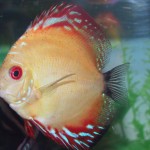


I have a question regarding the ethical treatment of bettas offered for sale at my local Petco. They are put in small containers that I would typically buy potato salad from my local deli, in approx 2 -3 inches of water, and then shelved for days or weeks at a time, until sold or until they die. All are acting like they are in suspended animation – not moving a fin or anything. I’m really upset in seeing this mistreatment/cruelty, even though as some would say “its only a fish”.
What does this organization have to say about this?